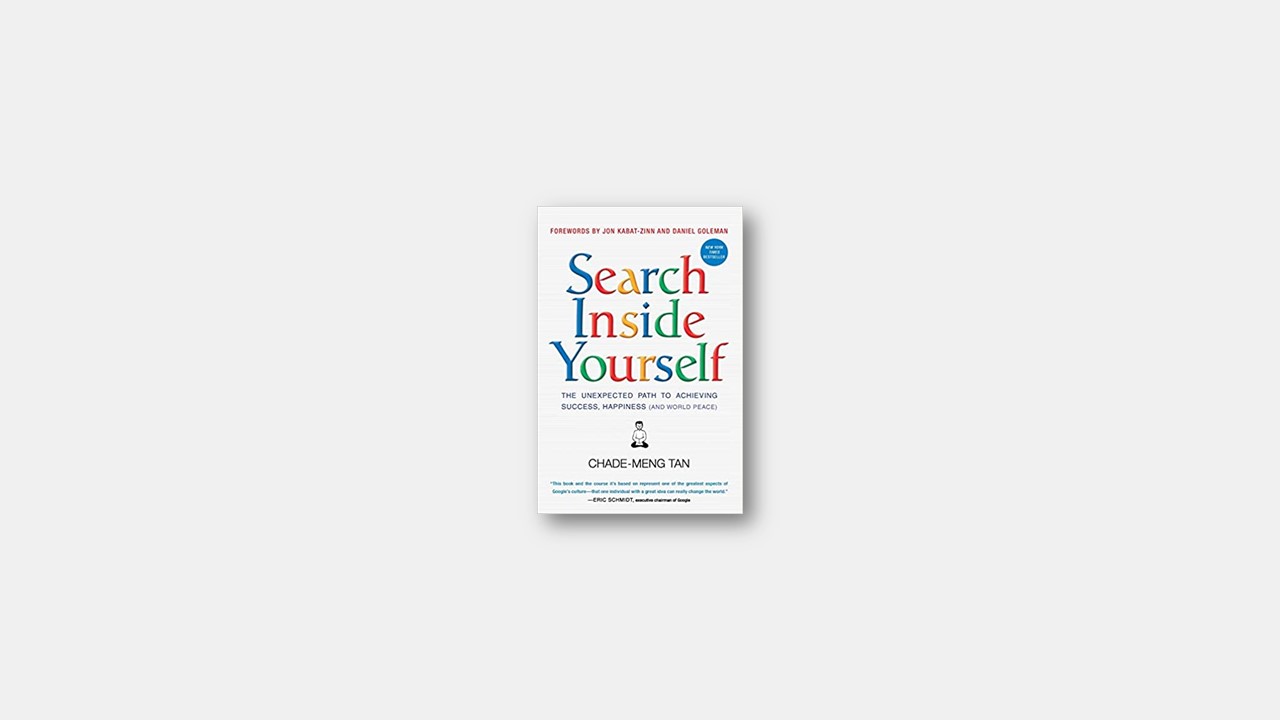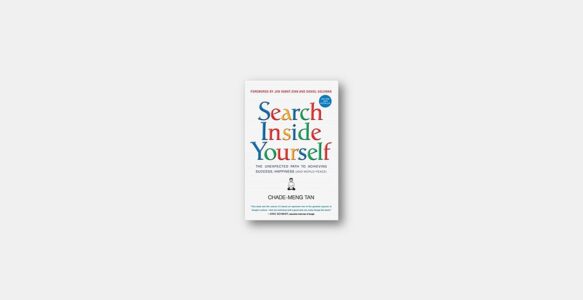Even an Engineer Can Thrive on Emotional Intelligence
Emotional intelligence is trainable, even in adults. This claim is based on a fairly new branch of science known as “neuroplasticity.” The idea is that what we think, do, and pay attention to changes the structure and function of our brains.
How do we begin training emotional intelligence? We begin by training attention. What does attention have to do with emotional skills?
The answer is that a strong, stable, and perceptive attention that affords you calmness and clarity is the foundation upon which emotional intelligence is built. For example, self-awareness depends on being able to see ourselves objectively, and that requires the ability to examine our thoughts and emotions from a third-person perspective, not getting swept up in the emotion, not identifying with it, but just seeing it clearly and objectively. This requires a stable and clear, non-judging attention.
The way to train this quality of attention is something known as “mindfulness meditation.” The good news is mindfulness is embarrassingly easy. It is easy because we already know what it’s like, and it’s something we already experience from time to time. Jon Kabat-Zinn skillfully defined mindfulness as “paying attention in a particular way: on purpose, in the present moment, and non-judgmentally.”
Put most simply, mindfulness is the mind of just being. All you really need to do is to pay attention moment-to-moment without judging. It is that simple.
The hard part in mindfulness practice is deepening, strengthening, and sustaining it, especially in times of difficulty. To have a quality of mindfulness so strong that every moment in life, even in trying times, is infused with a deep calmness and a vivid presence, is very hard and takes a lot of practice. But mindfulness per se is easy. It is easy to understand and easy to arise in ourselves.
Breathing as if Your Life Depends on It
When your attention and meta-attention both become strong, something interesting happens. Your mind becomes increasingly focused and stable, but in a way that is relaxing. It is like balancing a bicycle on easy terrain. With enough practice, it becomes almost effortless and you get the experience of moving forward and being relaxed at the same time. You get where you need to be, and you actually enjoy the experience of getting there because it is relaxing.
With enough practice, you may even become able to bring your mind to that state on demand and stay in it for a prolonged period of time. When the mind becomes highly relaxed and alert at the same time, three wonderful qualities of mind naturally emerge: calmness, clarity, and happiness.
Here is the analogy. Imagine you have a pot of water full of sediments, and imagine that pot is constantly shaken and agitated. The water appears cloudy. Imagine that you stop agitating the pot and just let it rest on the floor. The water will become calm and, after a while, all the sediments will settle and the water will appear clear. This is the classical analogy of the mind in the alert and relaxed state. In this state, we temporarily stop agitating the mind the same way we stop agitating the pot. Eventually, our mind becomes calm and clear, the same way the water appears calm and clear.
Mindfulness Without Butt on Cushion
The best place to practice mindfulness is in daily life. Once you are able to bring mindfulness into every moment of daily life, your quality of life may change dramatically. Thich Nhat Hanh illustrates this beautifully with his description of the simple experience of walking:
People usually consider walking on water or in thin air a miracle. But Tan thinks the real miracle is not to walk either on water or in thin air, but to walk on earth. Every day we are engaged in a miracle which we don’t even recognize: a blue sky, white clouds, green leaves, the black, curious eyes of a child—our own two eyes. All is a miracle
When in mindfulness, even the simple experience of walking on earth can be a beautiful miracle.
We take for granted many of the neutral things in life, such as not being in pain, having three meals a day, and being able to walk from point A to point B. In mindfulness, these become causes of joy because we no longer take them for granted. In addition, pleasant experiences become even more pleasant because our attention is there to fully experience them. For example, a delicious meal when consumed in mindfulness becomes more enjoyable simply because you put your full attention into enjoying the meal. When living in mindfulness, neutral experiences tend to become pleasant, and pleasant experiences become more pleasant. There is no cost or downside (nor down payment). What a great deal
All-Natural, Organic Self-Confidence
An easy way to get an injection of self-confidence is to attend a motivational speech where some guy speaking perfect English without Tan’s funny accent shouts at you and tells you how great you are, “You can succeed! You are great! You can do it!” And everybody claps. And we all go home feeling great about ourselves, for three days, maybe. In Tan’s experience, however, the only highly sustainable source of self-confidence comes from deep self-knowledge and blatant self-honesty.
It comes from accurate self-assessment. If we can assess ourselves accurately, we can clearly and objectively see our greatest strengths and our biggest weaknesses. We become honest to ourselves about our most sacred aspirations and darkest desires. We learn about our deepest priorities in life, what is important to us, and what is not important that we can let go. Eventually, we reach a point where we are comfortable in our own skins. There are no skeletons in our closets we do not already know about. There is nothing about ourselves we cannot deal with. This is the basis of self-confidence.
Riding Your Emotions like a Horse
Once upon a time in ancient China, a man on a horse rode past a man standing on the side of the road. The standing man asked, “Rider, where are you going?” The man on the horse answered, “I don’t know. Ask the horse.”
This story provides a metaphor for our emotional lives. The horse represents our emotions. We usually feel compelled by our emotions. We feel we have no control over the horse, and we let it take us wherever it wants to. Fortunately, it turns out that we can tame and guide the horse. It begins with understanding the horse and observing its preferences, tendencies, and behaviors. Once we understand the horse, we learn to communicate and work with it skillfully. Eventually, it takes us wherever we want to go. Hence we create choice for ourselves. We can then choose to ride into the sunset and look cool like John Wayne.
Self-regulation is also not about denying or repressing true feelings. Feelings carry valuable information, so if you deny or repress them, you lose that information. Self-regulation is about becoming very skillful with emotions. For example, Tan was told that in Buddhist psychology, there is an important difference between anger and indignation: anger arises out of powerlessness, while indignation arises out of power. Because of that difference, when you feel angry, you feel out of control, but when you feel indignant, you can retain full control of your mind and emotion. Hence, you can be emotional and fighting for change without ever losing your cool. Indignation is, therefore, a skillful state and a good example of self-regulation at its best. Tan thinks the person who best personified this was Gandhi. Gandhi was not an angry man, but that did not stop him from fighting injustice or leading massive marches. All that time he was fighting, he never lost his calmness or compassion.
Empathy and the Monkey Business of Brain Tangos
Empathy is often confused with something called “psychologizing,” or speculating in psychological terms or on psychological motivations, often in an uninformed way. For example, let’s say you are explaining your problems to your boss, and midway through, your boss interrupts you to explain how your problems have to do with your presumed childhood issues and some other things he might have read about in pop psychology. He is psychologizing, not empathizing. When we psychologize, we are actually dismissing the problem, not understanding it. Unsurprisingly, psychologizing has been linked to mediocre performance in managers. Tan imagines that managers who psychologize routinely may start growing pointy hair like Dilbert’s pointy-haired boss. If, instead, your boss listens intently to you with his full attention, tries to understand what your problem means to you at both a cognitive and a visceral level, and does all that with kindness, he is empathizing
Empathy does not necessarily mean agreeing. It is possible to understand another person at both an intellectual and a visceral level with kindness, and still respectfully disagree. Aristotle said, “It is the mark of an educated mind to be able to entertain a thought without accepting it.” Disagreeing with empathy is a lot like that. It is the mark of a developed mind to be able to understand and accept another’s feeling without agreeing to it.
That insight suggests that it is possible to make tough decisions while still being empathetic. In fact, in many situations, the best way to make tough decisions is with kindness and empathy. In a business setting, if we have to make a decision that hurts somebody’s interest, it is easy to tell ourselves not to bring empathy to the situation, because if we do, we will just make it hard for ourselves to make our tough, but necessary, decision. I
Being Effective and Loved at the Same Time
Compassionate Leadership Is the Most Effective Leadership
The best definition of compassion Tan know comes from the eminent Tibetan scholar Thupten Jinpa. Jinpa is also the longtime English translator for the Dalai Lama. He has a charmingly mellow and gentle voice, so the Dalai Lama mischievously makes gentle fun of it every now and then.
Jinpa defines compassion as follows: Compassion is a mental state endowed with a sense of concern for the suffering of others and aspiration to see that suffering relieved.
Specifically, he defines compassion as having three components:
- A cognitive component: “I understand you”
- An affective component: “I feel for you”
- A motivational component: “I want to help you”
The most compelling benefit of compassion in the context of work is that compassion creates highly effective leaders. To become a highly effective leader, you need to go through an important transformation. Bill George, the widely respected former CEO of Medtronic puts it most succinctly, calling it going from “I” to “We.”
This shift is the transformation from “I” to “We.” It is the most important process leaders go through in becoming authentic. How else can they unleash the power of their organizations unless they motivate people to reach their full potential? If our supporters are merely following our lead, then their efforts are limited to our vision and our directions…. Only when leaders stop focusing on their personal ego needs are they able to develop other leaders.


